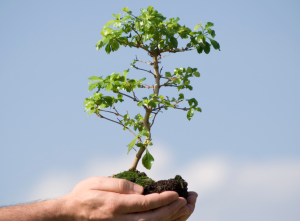
Honouring the Journey: Meaningful Options for a Loved One’s Ashes
After cremation, many families wonder what to do with their loved one’s ashes. Fortunately, there are numerous ways to honour your loved one, and the choice is a deeply personal one. Here are a few possibilities:
Burial or Interment: Many cemeteries have specific areas designated for the burial of ashes. Alternatively, you could consider a columbarium, which is a building or structure with niches for the respectful storage of urns.
Scattering the Ashes: Some people choose to scatter ashes in a place that held special meaning for their loved one, such as a garden, forest, or body of water. Ensure to check local laws or obtain necessary permissions if required.
Keeping the Ashes at Home: You might prefer to keep the ashes at home in a beautiful urn or a specially designated place. It can provide a sense of comfort and closeness.
Creating Memorial Objects: Today, numerous companies transform a small amount of ashes into unique memorial objects, such as jewellery, art, or even vinyl records. These can serve as a comforting reminder of your loved one.
Planting a Memorial Tree: Some companies provide biodegradable urns designed to mix with seeds and soil, turning your loved one’s remains into a living tribute.
The decision on what to do with your loved one’s ashes is a personal journey. It’s essential to take your time and choose something that feels right for your family. At MH Funerals, we respect every family’s choices and are here to support you in creating a lasting tribute that honours your loved one’s unique life.

Supporting with Words: Navigating Conversations with a Grieving Loved One
Losing a parent is an experience that leaves many of us searching for the right words to comfort a loved one. It is a profound and deeply personal loss that may leave those grieving feeling adrift. During this challenging time, your compassionate and understanding presence can provide valuable support.
A simple “I’m sorry for your loss” can often be the most comforting. It’s straightforward, sincere, and doesn’t minimise the pain they’re experiencing. Avoid clichés such as “They’re in a better place” or “At least they lived a long life,” as these phrases can unintentionally invalidate their grief.
Listening is another essential part of supporting a grieving loved one. They may need to share memories, express their feelings, or talk about their parent. Be patient and offer a listening ear, even if they repeat the same stories or thoughts. This repetition is often a crucial part of the healing process.
Sometimes, practical help can speak louder than any words. Offering to cook meals, run errands, or look after their children can provide tangible support when they are overwhelmed by grief.
Lastly, remember that grief doesn’t follow a schedule. Long after the funeral, your friend will still miss their parent. Continue to check in on them in the weeks and months following their loss. Your ongoing support can mean more than you might think.

The Difference Between Modern and Traditional Funerals
The ritual of farewelling a loved one has been a sacred practice since the dawn of human history, with traditions varying across different cultures and periods. However, the fundamental aim of these services remains the same: honouring the departed, providing comfort to the living, and facilitating the grieving process.
In recent years, we have witnessed a shift in funeral customs. While traditional funerals are deeply rooted in cultural or religious rites, modern funerals increasingly emphasise personalisation and individuality. Understanding the differences between these two approaches can help families choose the most suitable way to celebrate a loved one’s life.
Traditional funerals usually follow a prescribed set of rituals. These might include a viewing or wake, a formal funeral service at a church or funeral home, a procession to the cemetery, and a burial or interment of the remains. Religious readings, hymns, and prayers often play a central role in these ceremonies, providing comfort and hope to the bereaved.
Modern funerals, on the other hand, tend to focus on celebrating the individual’s life rather than dwelling on their death. They are often less formal and may take place in a variety of locations, from parks and gardens to the deceased’s home or a favourite location. Instead of religious rites, these services might incorporate favourite music, personal anecdotes, and tributes that reflect the person’s hobbies, passions, or achievements.
Increasingly, modern funerals also utilise technology, such as live streaming the service for those who cannot attend in person or creating multimedia presentations to remember the deceased. Additionally, modern funerals might consider environmentally-friendly practices, like green burials or biodegradable coffins.
In conclusion, both traditional and modern funerals have unique strengths and can offer comfort in different ways. The choice between the two often depends on the deceased’s wishes, the family’s beliefs and values, and the cultural or religious context. At MH Funerals, we respect all traditions and beliefs, ensuring that each service we organise is a fitting tribute to the individual it honours.








